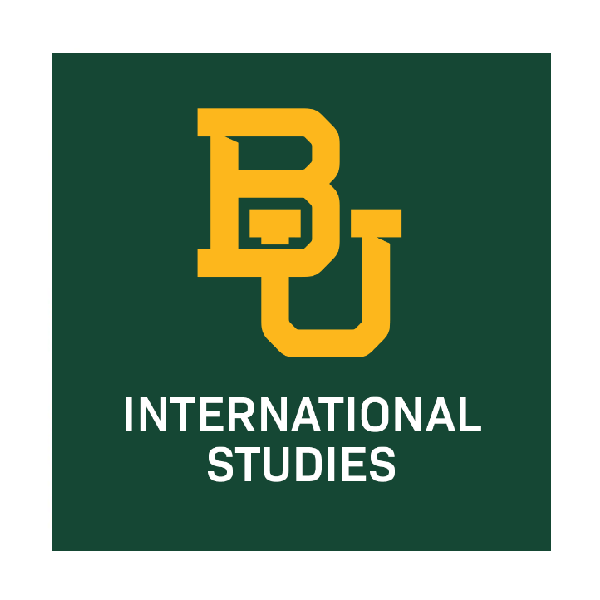by Mackenzie Eubank

In layman’s terms, what do you do?
I cultivate relationships with diplomats and civil society organizations at United Nations headquarters, engage in written and oral advocacy, draft interventions and submissions for the UN and related institutions, and provide legal counsel on issues related to the protection of human life, the family, freedom of religion or belief, freedom of opinion and expression, and parental rights under international human rights law.
What does an average workday look like for you?
During the United Nations General Assembly session or commission season, my morning typically starts with a review of the UN Journal, which allows me to determine what meetings, side events, or negotiations are taking place. My teammate and I allocate work to follow any relevant processes accordingly. We also attend any appointments, connect with other CSOs and diplomats, and analyze pressing legal matters for our team.
How did you go about choosing this profession/job position?
After graduating from Baylor, I attended graduate programs at the University of St. Thomas (MN) and Notre Dame Law School. I studied under professors who engaged in human rights advocacy at the United Nations and taught international law. I was also blessed with the opportunity to pursue a fellowship with the Permanent Observer Mission of the Holy See to the United Nations, where I experienced firsthand the inner work of a diplomatic mission.
Did you always know you wanted to work in International Human Rights?
As a son of Cambodian refugees from the Khmer Rouge, I was always interested in human rights on some level. I learned early on that ideas have “real-world” consequences, and that human rights and fundamental freedoms were not something that could be taken for granted. The killing fields, gulags, and concentration camps of the last century stemmed from flawed anthropologies and purely materialistic conceptions of organizing societies that failed to recognize the intrinsic dignity of the human person and grant any worth to transcendental values of truth, beauty, and goodness. I never would have imagined that embryonic interest would manifest in the way of formally practicing as an international human rights lawyer. Yet, God has a way of aligning our passions, desires, and interests in a way that makes evident how he wants us to exercise the gifts and talents entrusted to us.
Tell me a bit about Khmer. What is it? How did you learn the language? Did you study a language at Baylor? At Notre Dame?
Khmer is the main language spoken in Cambodia, which I spoke while growing up at home. English is my second language. While at Baylor, I also briefly studied Spanish and Latin. I did not study any languages at Notre Dame, as their LL.M. program was more focused on exploring international human rights law from a variety of jurisprudential schools (e.g., natural law, positivist, realist, etc.), including in relation to the Christian intellectual tradition & Catholic social teaching.
Tell me about your first statement given to the United Nations Human Rights Council.
My statement was given during the recent Human Rights Council debate on the 30th Anniversary of the Vienna Declaration and Platform for Action, which undertook a comprehensive review of the international human rights framework in the aftermath of the Cold War. I reiterated core principles from the VDPA, while lamenting that aspects of that milestone document have been minimized by the proliferation of “false” rights that undermine the principles of universality, indivisibility, interrelatedness, and interdependence.
While recognizing the limits of exalting state sovereignty above all considerations, I called upon the HRC to adopt, in Professor Mary Ann Glendon’s words, a modesty concerning which rights can claim universality and respect for States’ various cultural, religious, and social backgrounds rather than asserting a “top-down” approach to human rights. The latter counterreaction risks ideological colonialism, chills authentic social and political discourse, and prevents nations from instantiating human rights in a way that honors their civilizational patrimonies.
What specific Human Rights reform(s) are you most interested in?
As a young husband and father, I have increasingly become concerned about respect for parental rights as recognized under international human rights law instruments such as the Universal Declaration of Human Rights (UDHR), the International Covenant on Civil and Political Rights (ICCPR), the International Covenant on Economic, Social and Cultural Rights (ICESCR), and the Convention on the Rights of the Child (CRC).
The child is indeed a rights holder under international human rights law, but their rights are fully realized in a relationship with others and not exercised in a vacuum. Barring certain exceptional circumstances, fully respecting, protecting, and fulfilling the rights of the child includes respecting the primordial rights and duties of their parents or legal guardians, which I hope our advocacy can support.
What is your favorite memory from Baylor University?
My favorite memory from Baylor University was Holy Saturday 2010 when I was baptized and received into the Roman Catholic Church at St. Peter’s Catholic Student Center surrounded by dear friends and colleagues.
Any advice for current IST undergraduate majors?
First, take time to build good friendships in college. True friends will journey with you in life through thick and thin. Second, be discerning, but read as much as you can in your interest areas, whether that be in history, philosophy, theology, political science, literature, etc. While developing technical competency in whatever profession you pursue is important, the lessons you learn from being immersed in “the best which has been thought and said” will enrich the remainder of your life. Third, find a mentor or professor you admire and offer to serve as their research assistant in order to give back what you have received. Finally, however you understand it at this stage of your life, cultivate your faith or spiritual life with sincerity, inquiry, and reverence. A great Teacher once said, “Ask, and it shall be given you: seek, and you shall find: knock, and it shall be opened to you.”

